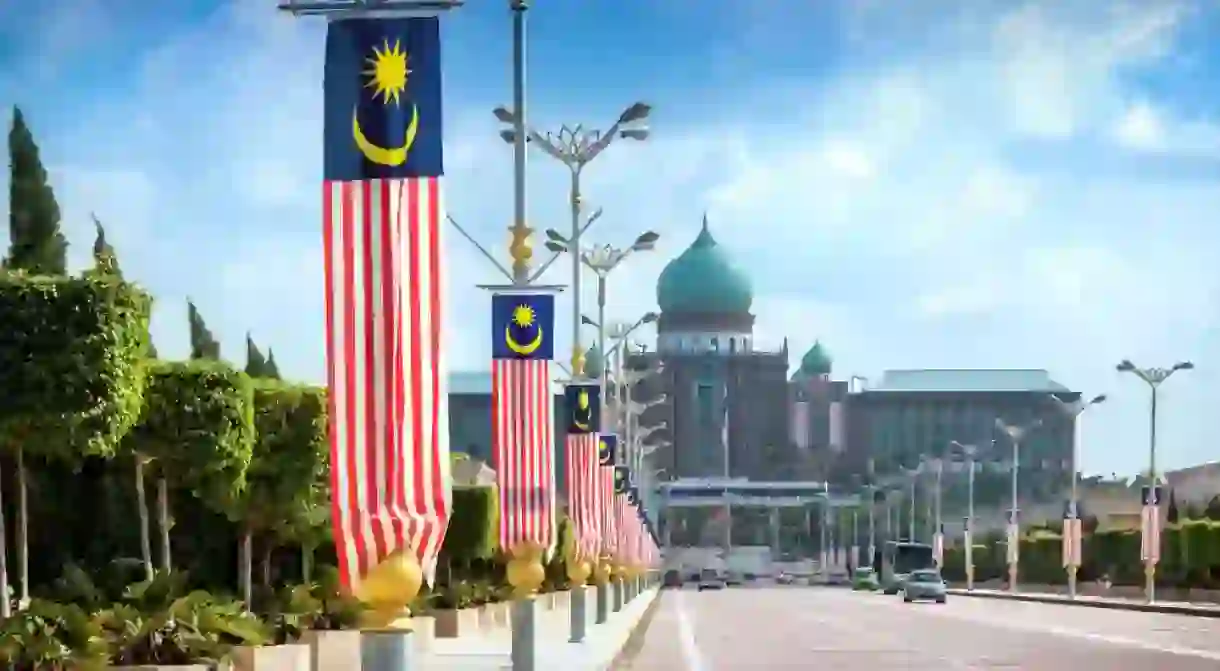25 Essential Malay Phrases You'll Need in Malaysia

Malaysians may speak English, but an attempt to speak in Malay language could still earn you bonus points – and potentially better prices at the tourist places in Malaysia.
After reading through this guide you’ll be ready to put your Malay phrases to the test. Why not book a tour in Malaysia to make the most out of you trip?
Greetings and essentials
Terima kasih (te-ree-mah ka-seh) / Thank you
Thank your taxi driver, your waiter, and the man who’s flipping your roti canai. Malaysians are big on gratitude.
Ya (yah) / Tidak (tee-dak) – Yes / No
“Ya” and “tidak” will be your most-used phrases in Malaysia. Remember them well.
Selamat jalan (s’la-mat zha-lan) / Goodbye
Everyone knows “Bye,” but not many will part with the formal “Selamat jalan.” Here’s your chance to impress your Malaysian business colleagues on your way out.

Sama-sama (saa-ma saa-ma) / You’re welcome
When someone thanks you, be sure to quip “sama-sama” in return. It’s also common to use the simpler, more memorable option: “sama.”
Saya Tak Faham (saa-yah tak faa-haam) / I don’t understand
This is the only must-know Malay phrase. Some elderly folk may not speak English, but may be animatedly telling you about the history of Malaysia in the local dialect – redirect them with a gentle “saya tak faham.”
Directions
Di mana tandas (dee ma-na tan-das) / Where is the bathroom?
Bathrooms are readily available in malls, cafés, and restaurants, but the local kopitiam (coffee shop) may not offer you the luxury of relieving yourself. If you still want to try your luck, this phrase will come in handy.

Belok kanan / Belok kiri (beh-lock kaa-naan / beh-lock kee-ree) – Turn right / Turn left
If you’ve asked for directions, keep your ears pricked for either phrase. You don’t want to end up at the bookstore if you’ve asked for the bathroom.
Jalan terus (zha-lan te-roos) / Go straight
“Jalan” means “walk” or “go,” and “terus” means “straight.” So if you hear this phrase, it means you have to keep your eyes and feet along the current path.
Perlahan sikit (per-laa-haan see-keet) / Slow down
If your Grab driver is pushing the speed limit, request they slow down with this phrase. And smile as if you haven’t just accused them of breaking the law.
At the restaurant / bar
Kurang manis (koo-raang maa-nees) / Less sweet
If you’re cutting down on your sugar intake, you can request that your drink be “kurang manis.” Eateries, including food and drinks stalls by the street, will often halve the normal amount of sugar for your drink.
Tanpa gula (tan-pa goo-lah) / No sugar
Abstaining from sugar altogether? Then ask for your coffee and tea “tanpa gula.” Eateries and cafés are usually happy to oblige.

Kurang ais (koo-raang aa-is) / Less ice
If you want something cold but not saturated with ice, ask for it “kurang ais.” This applies to iced teas, iced coffees, and even blended drinks (e.g. frappuccinos).
Tanpa susu (tan-pa soo-soo) / No milk
Dairy intolerant? Go dairy-free with this phrase. Handy for drinks, not food.
Tambah pedas / Kurang pedas (tam-bah pe-das / koo-raang pe-das) – Extra spicy / Less spicy
Whether you’re dining at a street stall or a fancy fusion restaurant, you can ask for your meal to be more or less spicy, according to your preference.
Sedap (se-daap) / Tasty
If your meal is hitting all the right taste buds, let your waiter know that it’s super “sedap.” You may also wish to leave a tip or a good review on TripAdvisor.
Air (ah-yer) / Water
Need some water to complement the good food? Ask for “air” – and you can usually have it iced or hot.
At the market

Berapa (be-raa-paa) / How much?
Always ask your vendor for the price before agreeing to purchase anything. It helps set a starting point for haggling, or even just a vague price point before you commit to the purchase.
Mahal (maa-hal) / Expensive
Use this word when you think the tacky ‘I love Malaysia’ T-shirt isn’t worth your vendor’s asking price. If it’s anything above RM80 ($20), it’s too mahal, really.
Numbers
Satu (saa-too) / 1
Dua (doo-aa) / 2
Tiga (tee-gaa) / 3
Empat (erm-paat) / 4
Lima (lee-mah) / 5
Enam (er-nam) / 6
Tujuh (too-jooh) / 7
Lapan (laa-pan) / 8
Sembilan (sem-bee-lan) / 9
Sepuluh (se-poo-looh) / 10
Making friends
Dah makan (daa-h maa-kan) / Have you eaten?
You may find people asking you if you’ve eaten, even if it’s nowhere near mealtime. This is often just a way to ask you how you are – without, you know, actually asking how you are.
Cantik (chan-tek) / Beautiful
This applies to architecture, paintings, even food, and can often be appropriated – cantik-nya – (so beautiful). Sometimes it can be applied to beautiful people, but you may want to refrain from doing this as it could be interpreted unfavorably.

Jom (zhom) / Let’s go
Here’s the coolest catch-all phrase in town: “Jom.” On its own, it just means “let’s go,” but paired with other words, it could mean “let’s eat” (“jom makan”) or “let’s drink” (“jom minum”; non-alcoholic).
For everything else…
Panas (paa-nas) / Hot
This is the word to use if you want to complain about the weather – as in, “Don’t go outside; it’s super panas-lah.”
Tolong (toh-long) / Please
“Tolong” in Malay language could mean “help” (used when you’re lost and can’t read a map, or when you’re drowning in water and need a life float), or it could mean “please.” You may hear gentle exhortations include the word “tolong-lah” – which may or may not be used in jest.
Boleh (bow-leh) / Can
When someone tells you “boleh,” it means it can be done, no problem. You can also use “boleh” to mean that you “can” or are capable of completing something.













